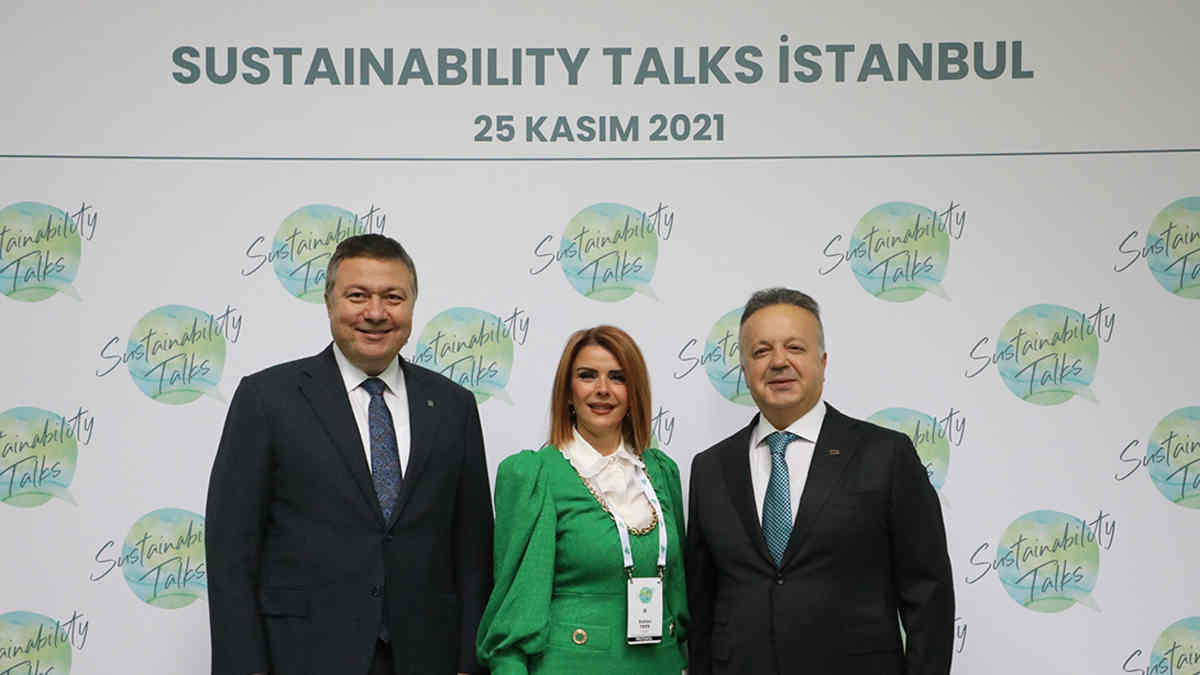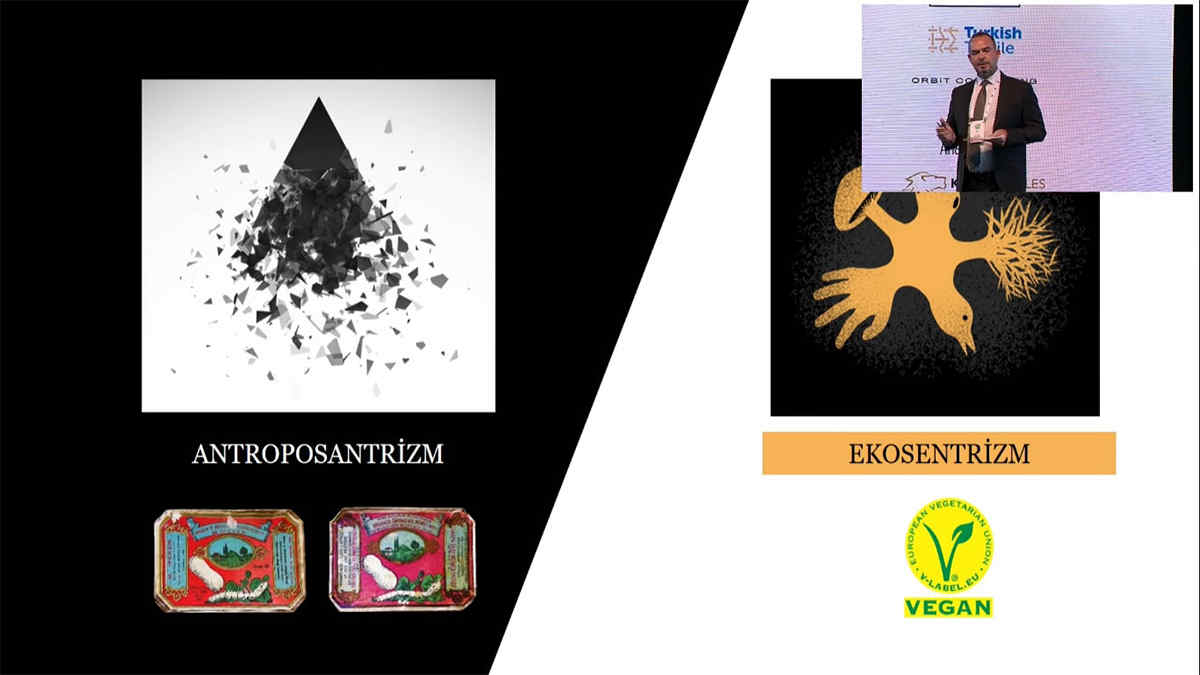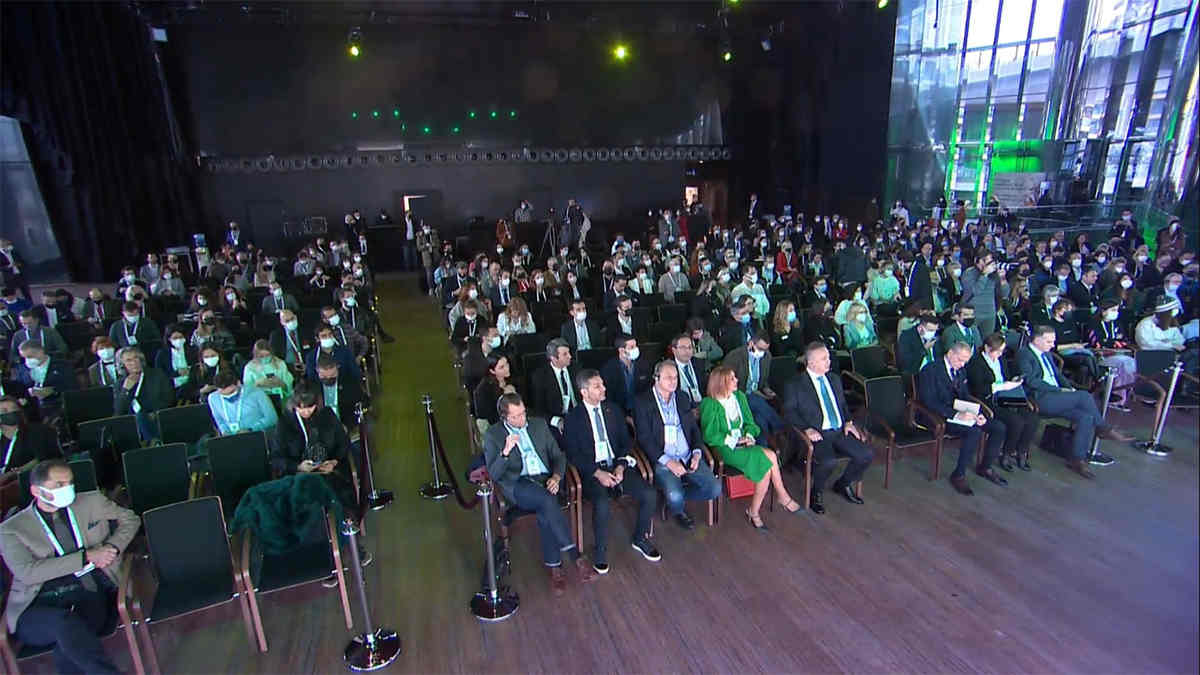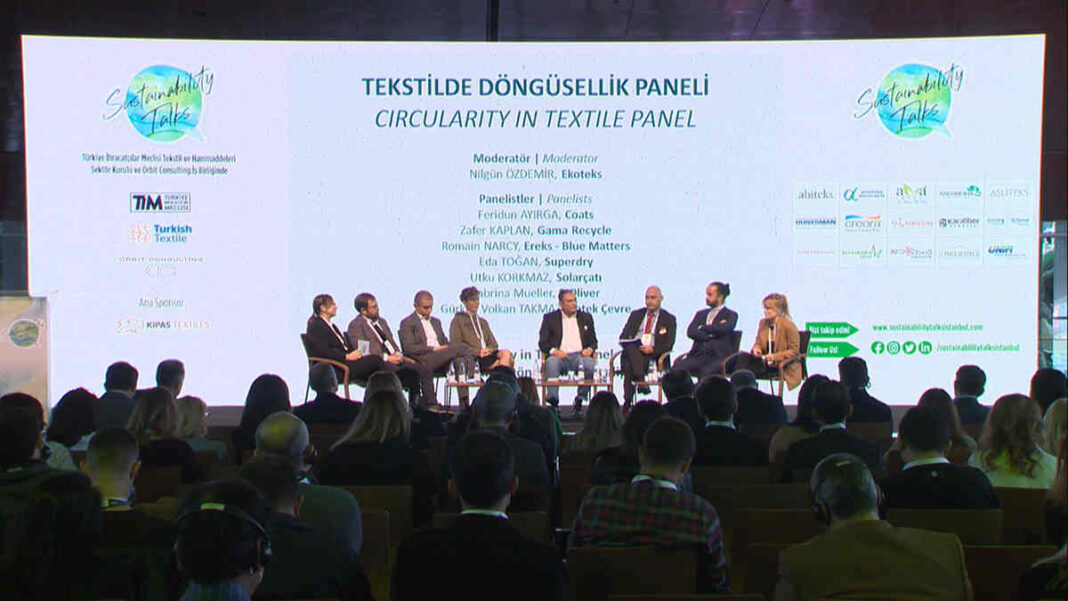Sustainability Talks, held for the second time this year, have brought together local and international textile manufacturers both physically and virtually on November, 25. A sustainable and transparent textile value chain and circularity were the main topics of the event, held at Zorlu Performing Arts Center with the strategic partnership of Turkish Exporters’ Assembly Textile and Raw Materials Sector Board and Orbit Consulting and with the main sponsorship of Kipaş Textiles. Textile manufacturers from all segments emphasized the importance of public-private cooperation in the fight against the climate crisis and emphasized the importance of unity in this sense throughout the event. Lots of big brands such as İpeker Tekstil, Aslı Tekstil, H&M, Ikea, Tommy Hilfiger, Itema, and Karl Mayer inspired the textile industry by explaining their sustainable works. Applications such as vegan textile production, polyamide that dissolves in nature in a short time, zero waste in denim dye managed to attract the attention of the participants.
“Sustainability Talks achievements will be a pioneer for all sectors”
President of the Turkish Exporters’ Assembly (TIM) İsmail Gülle said that Turkey’s foremost sustainable activity is exports and that exporters are the soldiers who know the concept of sustainability best in the opening speech. Gülle underlined that, for this reason, they will realize their remaining goals step by step and carry the country’s production and exports to the future in a sustainable way and said; “The responsibility belongs to all of us, so everyone must take responsibility and take the initiative in this matter”.
Istanbul Textile and Raw Materials Exporters’ Association (İTHİB) President Ahmet Öksüz stated that the Sustainability Talks achievements will be a pioneer and an example not only for this sector but also for all sectors. Öksüz reminded that it is our duty to improve life in a sustainable way for future generations and he said; “In this context, we are aware that it is necessary to move forward with the spirit of partnership. This is not only the producers’ responsibility, but also the global brands’ and even the consumers’. We can only make our world sustainable by acting together”.

‘Coopetition’, not competition
Executive Board Member of Orbit Consulting Bikem Kanık touched on the concept of coopetition, which has been talked about a lot in the business world in the last few years and said; “I believe in this very much. I think this event that we are doing today explains the coopetition very well. Because by competing by the old means, we can neither reduce costs, increase production, nor create value and meaning in the new world. The important thing from now on is that the stakeholders of the sector, together under the roof of coopetition, share the best examples, their own experiences and innovations, as they are today, and think about how they will take the sector further. This is actually what we are going to experience today”.
CEO of the Industrial Development Bank of Turkey Ece Börü made this statement; “We are here today because there is an important turning point in the textile industry, which employs millions of people in our country. For all these reasons, we believe that when considering the textile and apparel industry from a sustainability perspective, it is necessary to focus not only on the production processes, but also on the entire value chain, and adopt a life-long impact assessment approach”.
İpeker Tekstil, the world’s first V-Label approved weaving manufacturer
İpeker Tekstil, the first weaving manufacturer in the world to be certified with a V-Label (quality label for vegan and vegetarian products), continues their journey that started with vegan silk. İpeker Tekstil General Manager and Board Member İhsan İpeker took part as a speaker at the event and stated that they moved away from anthropocentrism (human-centrism), in which humanity sees itself at the top of the pyramid and acts with the awareness that everything is for itself and can consume endlessly, and switched to ecocentrism, a structure that in which humans do not see themselves as hierarchically superior, but a part of it and consume consciously. İpeker, expressing that they chose vegan textile processes as a business model for themselves, stated that vegan eating habits are actually an awareness, a level of consciousness and a pioneering footstep of change. İpeker said; “We have adapted this to our own business model and combined it not only with the raw materials but also with the processes we do beneath the raw materials”.
İpeker stated that they have made a declaration on not increasing the capacity of their companies from now on and said; “We have seen that we are able to grow our company more than 3 times by using 40% less resources and reducing our production by 40% in the last 20 years”. İpeker also relayed that environmental labels of the textile raw material producers are used by companies producing textiles with coal and that the end consumer is therefore misled; He made an open call to companies producing raw materials not to sell to textile manufacturers producing with coal.

Free support for textile companies in sustainable production
Emrah Eşter, speaking on behalf of Archroma at the Sustainability Talks, announced that they have developed a tool called ONE WAY Impact Calculator, in which they can collect and display all kinds of detailed information such as water, electricity and natural gas consumption in a single point. Eşter stated that this can be used in all kinds of products and said that companies can get this tool by applying and getting the licence from them. Emphasizing that they only do this for support purposes and that they do not have a financial expectation, Eşter expressed that this is a method that will be very beneficial in textile companies.
Polyamide, biodegradable in 5 years
Fulgar Marketing Manager Daniela Antunes talked about the company’s own production of Amni Soul Eco, a biodegradable polyamide. Antunes said that while the others take 50 to 70 years to dissolve in nature, this one dissolves within a period of 5 years after they are thrown into nature and that they can see the same polyamide 6 properties when Amni Soul technology is used.
Another prominent solution in sustainable raw material solutions at the Sustainability Talks was cottonized hemp. Denis Druon from Marmara Hemp stated that they are growing hemp for textile and they are doing detailed studies on this subject. Druon noted that cotonized hemp will be recognized as a sustainable fibre with these official analyzes and said; “Sustainability will no longer be a buzzword, fashion will probably be more sustainable thanks to flax fibre”.

Zero dye waste in denim dyeing
Reminding that Turkey is in the top three in the global denim industry, MKS DEVO Kimya Head of Board Mehmet Korgün Şengün said that sulfur dyeing in denim both affects worker health negatively and pollutes the waters significantly. In addition, Şengün underled that a Lake Van disappears every year just to produce dye and a Caspian Sea is destroyed without return just to dye it and explained that they developed a patented product called Sultan Black Eco for this reason. Şengün stated that although they can do this in Bangladesh and Pakistan, they still cannot implement it in Turkey. He explained that the reason for this is the fact that the textile industry has a conservative and traditionalist structure and that they want it to be sustainable by doing everything as before. Şengün also emphasized that there would be no life without water and underlined that our priority should be water.
